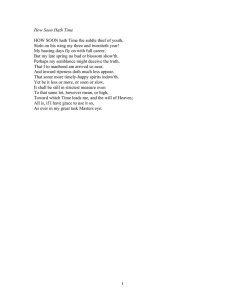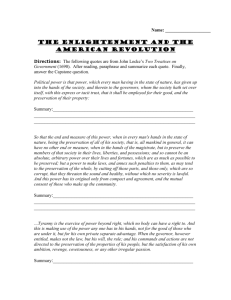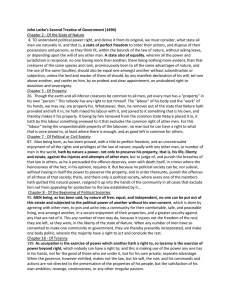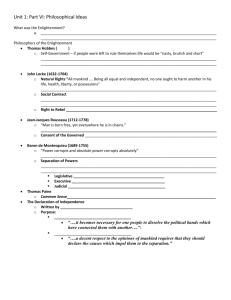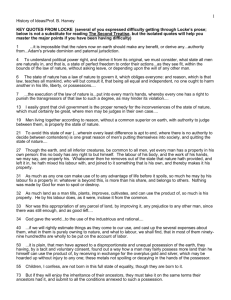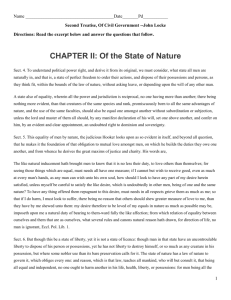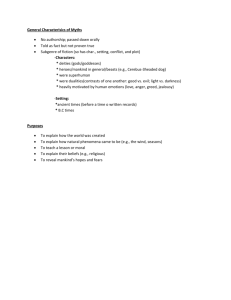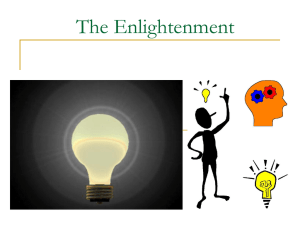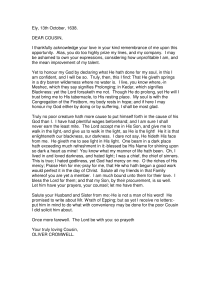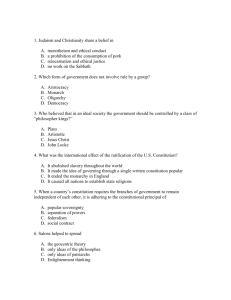The State of Nature
advertisement
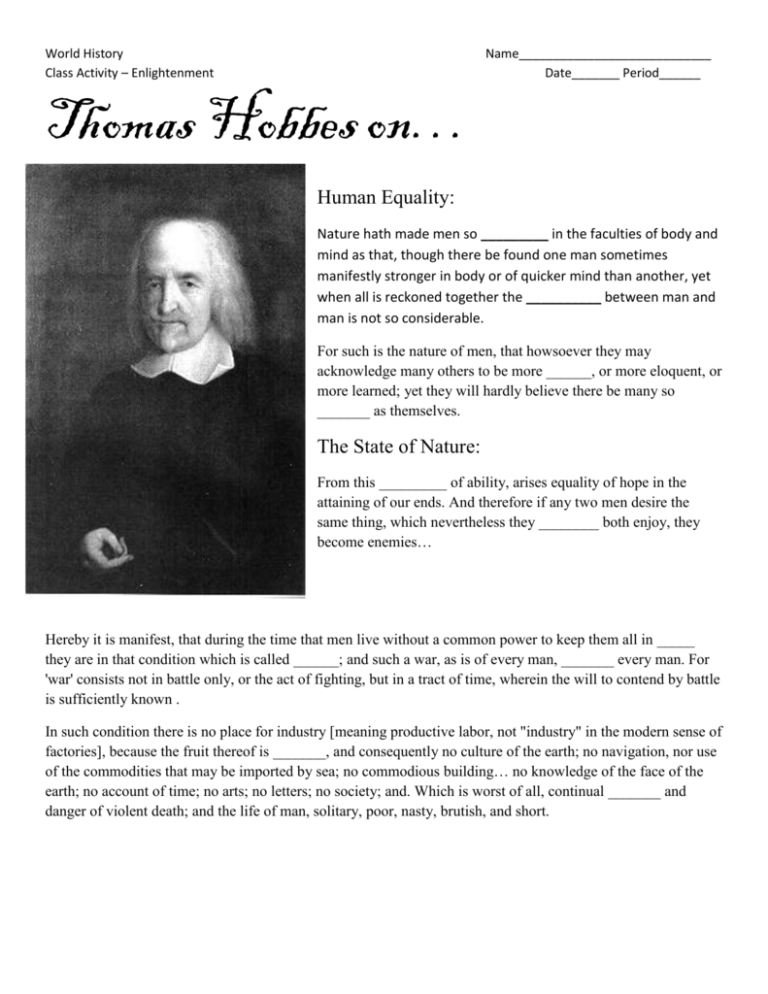
World History Class Activity – Enlightenment Name____________________________ Date_______ Period______ Thomas Hobbes on… Human Equality: Nature hath made men so _________ in the faculties of body and mind as that, though there be found one man sometimes manifestly stronger in body or of quicker mind than another, yet when all is reckoned together the __________ between man and man is not so considerable. For such is the nature of men, that howsoever they may acknowledge many others to be more ______, or more eloquent, or more learned; yet they will hardly believe there be many so _______ as themselves. The State of Nature: From this _________ of ability, arises equality of hope in the attaining of our ends. And therefore if any two men desire the same thing, which nevertheless they ________ both enjoy, they become enemies… Hereby it is manifest, that during the time that men live without a common power to keep them all in _____ they are in that condition which is called ______; and such a war, as is of every man, _______ every man. For 'war' consists not in battle only, or the act of fighting, but in a tract of time, wherein the will to contend by battle is sufficiently known . In such condition there is no place for industry [meaning productive labor, not "industry" in the modern sense of factories], because the fruit thereof is _______, and consequently no culture of the earth; no navigation, nor use of the commodities that may be imported by sea; no commodious building… no knowledge of the face of the earth; no account of time; no arts; no letters; no society; and. Which is worst of all, continual _______ and danger of violent death; and the life of man, solitary, poor, nasty, brutish, and short. Non est potestas Super Terram quae Comparetur ei" There is no power on earth to be compared to him John Locke on… The State of Nature: To understand political power aright, we must consider what state all men are naturally in, and that is, a state of perfect _________ to order their actions and dispose of their possessions and persons, as they think fit, within the bounds of the law of nature, without asking leave, or _________ upon the will of any other man…. The state of nature has a law of nature to govern it, which ______ every one: and reason, which is that ______, teaches all mankind, that being all equal and independent, no one ought to ______ another in his life, health, liberty, or possessions: for men are all the workmanship of on omnipotent and infinitely wise Maker, all the servants of one sovereign master, sent into the world by his order, and about his business… The damnified person [or person who has been mistreated] has this power of appropriating to himself the goods or service of the offender, by right of self-preservation, as every man has a power to punish the crime, to prevent its being committed again, by the right he has of preserving all mankind, and doing all reasonable things he can in order to that end: and thus it is, that every man, in the state of nature, has a power to kill a murderer, for the same reason that he may kill a wolf or a lion; because such men are not under the ties of the commonlaw of reason, have no other rule, but that of force and violence, and so may be treated as beasts of prey, those dangerous and noxious creatures, that will be sure to destroy him whenever he falls into their power. Reason: Men living together according to _______, without a common superior on earth, with ______ to judge between them, is properly the state of nature. God, who hath given the world to men in _______, hath also given them reason to make use of it to the best advantage of life, and convenience. The _____, and all that is therein, is given to men for the support and comfort of their being. Nothing was made by God for man to spoil or _______. And thus, considering the plenty of natural provisions there was a long time in the world, and the few spenders … there could be then little room for ________ or contention about property so established. The State of nature involves people living together, governed by reason, without a common superior, where as the state of war occurs when people make designs of force upon other people, without a common authority. A criminal who, having renounced _______ ... hath, by the unjust violence and slaughter he hath committed upon one, declared _______ against all mankind, and therefore may be destroyed as a lion or tiger, one of those wild savage beasts with whom men can have no society nor security. And upon this is grounded the great law of Nature, "Whoso sheddeth man's blood, by man shall his blood be shed. The Enlightenment Use pages 544-547 of your textbook to outline the ideas of the following Enlightenment philosophers: Hobbes Locke Montesquieu Voltaire Rousseau Wollstonecraft Look at The Roots of American Democracy on page 562. Answer the following: 1. What additional ideas might the Framers have learned from the political writings of the Enlightenment thinkers? 2. Explain the basic principle of checks and balances.

